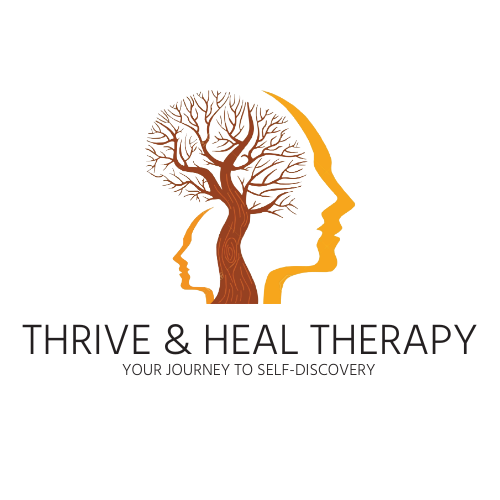Ever feel like you’re constantly putting others first and neglecting your own needs? Or maybe you find yourself drained by someone’s demands, but you’re not sure how to tell them “enough is enough”? You’re not alone. Setting healthy boundaries can feel awkward at first, but it’s one of the most powerful ways to take control of your time, energy, and relationships. In this guide, we’ll explore why boundaries matter and give you some easy-to-follow steps for creating them in your everyday life. Ready to start protecting your peace? Let’s dive in!
What Are Healthy Boundaries?
Healthy boundaries are the limits we set for ourselves in relationships—whether with family, friends, co-workers, or even strangers—that define what behaviors we find acceptable or unacceptable. They’re like invisible lines that protect your emotional, mental, and sometimes even physical space. When you have clear boundaries, you’re telling others what you’re comfortable with and what you’re not. And trust me, this is not about being mean or selfish—it’s about self-care and respect.
Why Boundaries Are Important:
- Preserve Your Mental Health: Without boundaries, you’re more likely to feel stressed, resentful, or overwhelmed.
- Boost Self-Esteem: Setting limits shows you value yourself and your time.
- Improve Relationships: Healthy boundaries can actually strengthen relationships because they create mutual respect and understanding.
- Prevent Burnout: Saying “no” sometimes allows you to focus on what really matters to you.
Signs You Might Need Better Boundaries
If you’re unsure whether you need to work on setting boundaries, here are a few red flags to watch out for:
- You often say “yes” to things you don’t want to do, just to keep the peace.
- You feel guilty when you say “no.”
- You find yourself feeling resentful toward people who ask too much of you.
- You avoid confrontations at all costs, even if it means sacrificing your needs.
- You regularly feel emotionally drained after social interactions.
Sound familiar? Then it’s time to start putting those boundaries in place!

How to Set Healthy Boundaries (Without Feeling Guilty)
- Identify Your Limits
The first step is getting clear on where you need boundaries. Take a moment to think about the areas of your life where you feel overwhelmed, taken advantage of, or uncomfortable. These could be in your work life, friendships, romantic relationships, or even with family members.
Ask yourself:
- What makes me feel stressed or anxious?
- When do I feel like my personal space or time is being disrespected?
- What behaviors am I no longer willing to tolerate?
Once you’ve pinpointed these areas, you’re on the right track!
- Communicate Clearly
When setting boundaries, don’t dance around the issue—be direct but respectful. It can feel uncomfortable at first, but clear communication is key. You don’t need to over-explain or apologize for wanting to protect your peace.
Example phrases you can use:
- “I can’t help with that project this time, I’ve got a full plate.”
- “I’d prefer if we didn’t discuss [specific topic]. It makes me uncomfortable.”
- “I need some alone time to recharge, but I’d love to hang out later.”
Remember, it’s all about stating your needs without being confrontational. You’re not responsible for how others react, only for how you communicate.
- Be Consistent
Once you’ve set your boundaries, stick to them! Consistency shows that you’re serious and that your limits aren’t flexible based on someone else’s feelings or expectations. Of course, there might be times when you want to make exceptions, but be mindful that if you bend your boundaries too often, they lose their effectiveness.
- Prepare for Pushback
Not everyone will be happy when you start setting boundaries, especially if they’ve been used to you saying “yes” to everything. People might guilt-trip you, make you feel selfish, or even get angry. But here’s the thing: their reaction is not your responsibility. You’re setting boundaries to take care of yourself, not to please everyone else.
Just stay calm, reaffirm your limits, and remember why you’re doing this. Over time, people will learn to respect your boundaries, even if they grumble about it at first.
- Practice Saying “No”
One of the hardest things for people with weak boundaries is learning to say “no” without feeling guilty. But “no” is a complete sentence! You don’t need to justify it. Practice small “no’s” in low-stakes situations, like declining a social invitation, to build up your confidence.
- Don’t Be Afraid to Walk Away
Sometimes, even with clear communication, people will continue to disrespect your boundaries. In those cases, it’s perfectly okay to distance yourself or cut ties altogether if needed. Toxic relationships, whether personal or professional, can drain your energy and damage your self-worth. Your well-being always comes first.
Common Myths About Boundaries
- “Boundaries are selfish.”
Actually, they’re the opposite! Boundaries ensure you have enough energy and emotional bandwidth to be your best self, which helps everyone around you, too. - “Saying ‘no’ will ruin my relationships.”
On the contrary, saying “yes” to everything can lead to resentment, which is far more damaging. Boundaries encourage healthier, more respectful relationships. - “I have to explain or justify my boundaries.”
Nope! Your boundaries are yours, and you don’t owe anyone a lengthy explanation. Simple, direct statements work best.

Setting healthy boundaries might feel uncomfortable at first, but it’s one of the best ways to protect your mental health and improve your relationships. Remember: it’s about self-respect and ensuring that your needs are met. Start small, be consistent, and don’t feel guilty for putting yourself first. After all, you can’t pour from an empty cup!




